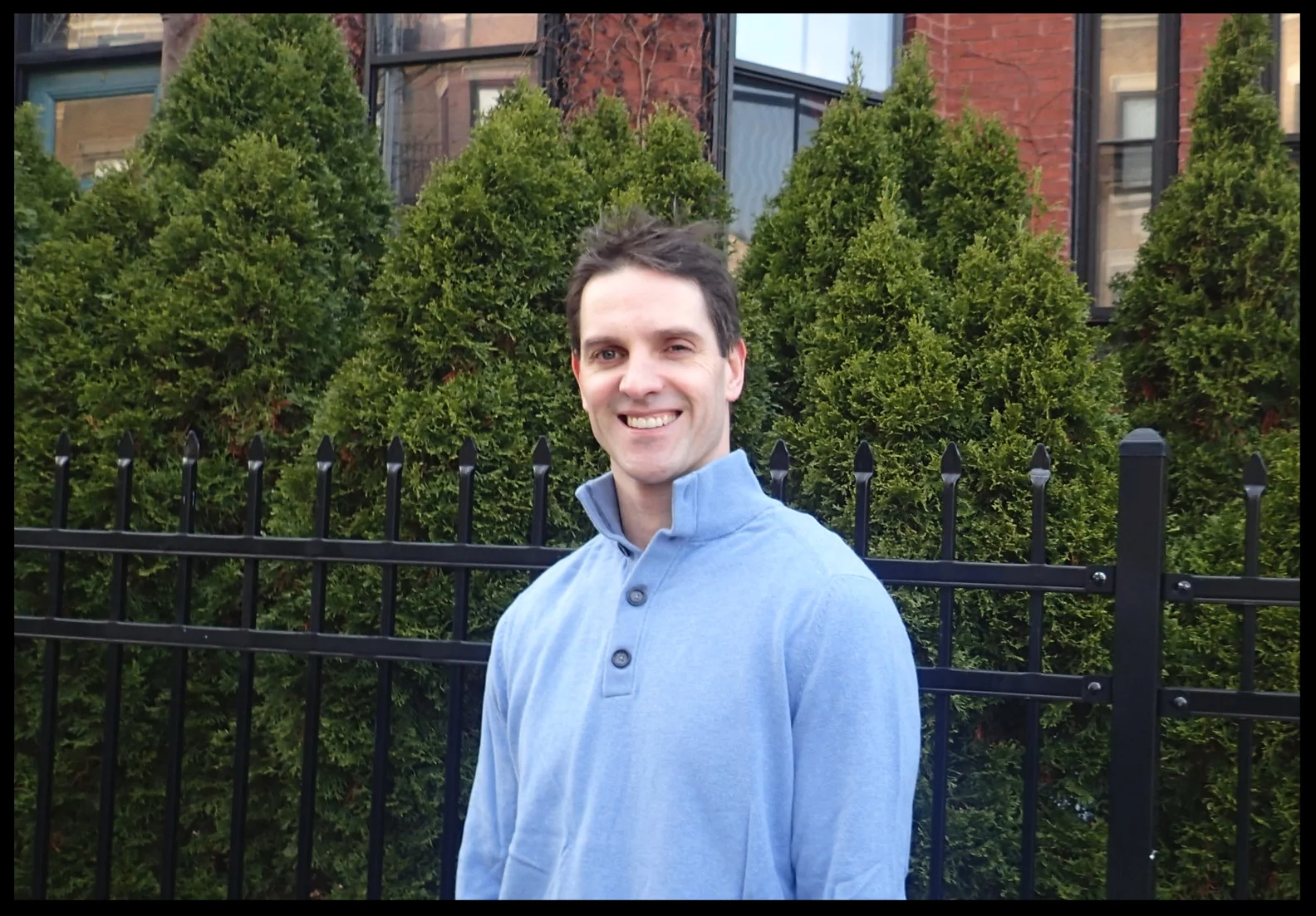Who Am I?
My wife thinks that I am a handful. She is correct. I've always been a bit of an iconoclast. I used to push my own stroller, explaining to Mom "me do it myself". Most kids grow out of that stage where they incessantly chirp "why?" Not me. Ask my (frustrated) former teachers - it has always been hard for me to accept anything on faith. It's hard to say whether this is nature or nurture, but it's probably a bit of both. One grandfather was a self-taught machinist who built his own house from scratch - plumbing, electrical, everything. The other grandfather was a police detective - expert at deciphering clues, identifying suspects, exploring hunches, and working recursively. Both occupations meant getting to the bottom of something.
My father wrote for The Boston Globe for 45 years, mostly in international sports, where crafting a story for deadline meant re-inventing the narrative after each play. He was also skirting past the Berlin Wall and smuggling himself into Cuba at a time when most of the world couldn't, even if they would. From time to time, we would tag along. Globetrotting was more of an adventure then - you had to know how to swap Deutschmarks for Yen, and there weren't any Alexas or iPhones or even internet cafes to help you do it. To get around, you had to do some problem-solving of your own. Dad prided himself on things like learning conversational Serbo-Croatian on the red-eye to Zagreb. Above all, the job meant being adaptable, and to do that successfully meant threshing the important from the trivial, reducing things to first principles, and spotting recurring patterns.
These early influences meshed with my need to experience, comprehend, and master the world around me. I’ve never had a desk job, probably because I can’t sit still. Instead, I have engaged in a variety of occupations in a variety of industries in a variety of cities. Like my father, I have vagabonded about the world, eager for new experiences. In high school, I played five sports and excelled at a variety of subjects, mostly by finding the commonalities between them. My generalist tendencies and broad skill set lent themselves well to standardized test-taking, culminating in a 2280 on the SAT, with a perfect score on the Verbal portion. That led to a National Merit Scholarship and an acceptance letter to Harvard. I graduated with a degree in Government, which I creatively applied by embarking on a career in derivatives trading.
In the trading pits, I learned how to learn. Mentors were few and far between, since there wasn't a lot of incentive for someone to teach me how to take his wallet or his job. Fortunately, that played to my strengths, since I was accustomed to understanding things on my own terms. So I learned to trade by self-educating, crafting my own methods from first principles, logic, trial, and error. Feedback was brutally honest - either my techniques worked, or I lost money. Fear of losing my shirt, my job, or both forced me to become ruthlessly efficient in my decision-making. There simply wasn't enough time to consider every variable before making a decision. In fact, I once clerked for a trader whose rules of engagement for speaking with him were as follows:
"Tell me what the problem is, in 10 words or fewer."
If I couldn't do it, he would tell me to come back when I could. He didn't have the luxury of listening to the details. This type of clear, effective thinking requires training, but it also allows you to stay calm amid the chaos. Trading is the epitome of problem-solving, because you are always dealing with imperfect information. So I learned how to filter out the noise, identify patterns, and rapidly distill and synthesize information to quickly get to the heart of the matter, allowing me to make educated choices under challenging conditions.
Trading was an eye-opening education in the art of decision-making. Ironically, that education is what eventually prompted me to leave. Wanting to live beyond the age of 30, I sold high, taking the money off the table and leaving Wall Street to pursue interests that I would probably engage in for free. Unsurprisingly, this has been a broad spectrum, inevitably drawing me back to my alma mater to capitalize on the abundance of available resources. And it's what led me to tutoring in the first place - it occurred to me that others could profit from my unique education, explorations and experiences.
So what does all of this have to do with YOU?
I know what is important to learn.
I know how to learn it efficiently.
I know how to communicate it effectively.
I know how to motivate students.

